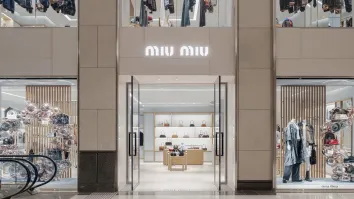
APAC consumers increasingly choose green cosmetics
They are rejecting synthetic ingredients due to their perceived harm to skin and ecosystem.
Environmental concerns are driving a significant increase in demand for sustainable and eco-friendly cosmetics in the Asia-Pacific (APAC) region, according to GlobalData.
Consumers are increasingly rejecting synthetic ingredients due to their perceived harm to skin and ecosystems, prompting manufacturers to adopt clean and natural alternatives.
“The benefits of green cosmetics, which include their less likeliness to react with the skin and the environment, is encouraging consumers to increasingly choose them over traditional products,” Naveed Khan, consumer analyst at GlobalData.
He added that the presence of toxic petrochemicals and microplastics in cosmetics is accelerating the shift towards low-pollutant options.”
Watsons, a health and beauty retailer, recently launched the Naturals by Watsons Special Edition Blue Beauty range in Hong Kong, featuring 94% natural ingredients and packaging made from recycled ocean-bound plastic, highlighting its commitment to addressing ocean plastic pollution.
Deepak Nautiyal, consumer and retail commercial director for APAC and the Middle East at GlobalData, noted that consumers are increasingly demanding responsibly sourced ingredients.
“Concepts such as waste reduction, balancing the usage of resources, and adopting sustainable communities and practices are gaining traction,” he said. “This trend is increasing the demand for ethically produced ingredients in cosmetics.”
As per GlobalData’s 2024 Q2 Consumer Survey found that 49% of respondents in Asia and Australasia consider a product’s ethical and environmental aspects in their purchasing decisions, whilst 81% view “natural” labels as essential or desirable.
Manufacturers are responding to this trend by integrating green practices.
“The growing consumer interest to lead a sustainable lifestyle presents manufacturers with the opportunity to develop greener cosmetics by enhancing their production and procurement processes,” said Khan.

















 Advertise
Advertise







